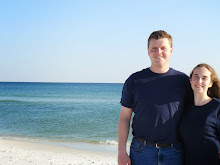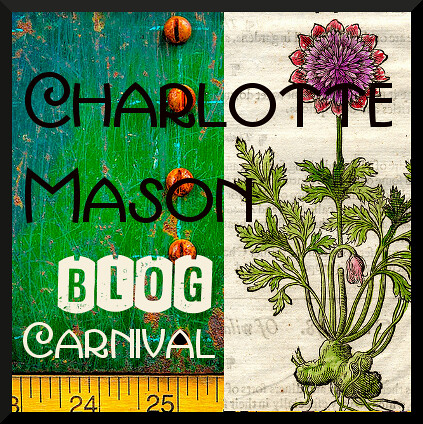"To the outside world we all grow old. But not to brothers and sisters. We know each other as we always were. We know each other's hearts. We share private family jokes. We remember family feuds and secrets, family griefs and joys. We live outside the touch of time." -Clara Ortega
- 80 to 90% of all persons in the United States have at least one birth sibling (this number is exclusive of persons who have step-siblings or adoptive siblings). Having sibling(s) is something that the the overwhelming majority of us experience in our lives.
- According to the U.S. Census, 79% of all children in the United States currently live with sibling(s).
- The sibling relationship is the longest lasting close human relationship in existence, literally beginning at birth and lasting until death. Our sibling relationships are already well formed by the time we develop friendships or take on life partners. Our siblings are typically still with us long after our parents have died. Siblings may be our only true "partners for life."
- As children, we learn vital lessons about socialization and interaction with others within the sibling relationship - among other things, we learn how to play, to struggle, to negotiate, to cooperate, to be responsible for others and to allow others be responsible for us. The lessons we learn from siblings in these areas are at least as important as what we learn from our parents, and more important than what we learn from friends, teachers, partners, or anyone else in life.
- The development of our personal identities takes place, to a significant degree, within the context of our relationships with siblings. Our very sense of who we are as individuals appears to be inextricably tied to our life experiences with brothers and sisters.
- By the time a child is eleven years old, he or she devotes about 33% of available spare time to exclusive interaction with siblings - more than the amount of time spent with parents, friends, teachers or even time spent alone. Adolescents appear to spend an average of 10 hours a week exclusively with siblings.
- The sibling relationship becomes a haven of support and protection for its members in times of family crisis. This is especially pertinent for children who are brought into foster care because of abuse or neglect. Separating siblings in foster care and adoptive planning robs them of this vital source of support and emotional survival.
- The loss of a sibling is uniquely devastating and is frequently described as the loss of part of oneself by surviving siblings. This may be related to the development of individual identity that researchers have identified as taking place within the sibling relationship. The phenomenon of disenfranchised grief has been identified with sibling loss, because the unique depth of that loss is typically not recognized by others in the same way other types of familial loss are.
- Children who are separated from siblings in the child welfare system can also suffer from ambiguous loss, a phenomenon described by researcher, Pauline Boss, as preventing one from reaching closure, or successfully navigating through the normal stages of grief. The loss of a sibling through separation - without the opportunity to remain connected - can result in irreconcilable lifelong grief.
- About 70% of the over 500,000 children in foster care in the United States are separated from at least one of their siblings.
"From the time that they are born, our brothers and sisters are our collaborators and co-conspirators, our role models and cautionary tales. They are our scolds, protectors, goads, tormentors, playmates, counselors, sources of envy, objects of pride. They teach us how to resolve conflicts and how not to; how to conduct friendships and when to walk away from them. Sisters teach brothers about the mysteries of girls; brothers teach sisters about the puzzle of boys. Our spouses arrive comparatively late in our lives; our parents eventually leave us. Our siblings may be the only people we ever know who truly qualify as partners for life. Siblings are with us for the whole journey."
Katherine Conger - University of California, Davis
Katherine Conger - University of California, Davis
It really affected me, having recently lost my brother due to his death, partly because of my own loss, and the unexpectedness of reading about it in cold statistics from an adoption packet. But, all those children -- can you fathom it? They were still growing up with their siblings, but are separated from them, when they don't even have their own parents to comfort them but are in foster care. Maybe they eventually get adoptive parents, but many have to lose their siblings to have that option open to them...
"So sad" doesn't even cut it.
Oh, I know there are lots of reasons why this is, but still how very, very sad. What a broken, broken world.
May the Lord help us, to not only be saddened by this, but to feel compassion as He does, and to let it move us -- yes, even outside our comfort zone -- to do what we can to reach out to these children, somehow, whose sorrow must be beyond belief.
"Pure and undefiled religion before God and the Father is this: to visit orphans and widows in their trouble, and to keep oneself unspotted from the world." James 1:27









So many levels. . .
ReplyDelete--Thinking of my own siblings and our relationships. It's true, there are things they "get" that others just don't--we have the same frame of reference. And we've been through the "family crisis" and I just can't imagine how much harder it would have been not having one another!
--Thinking of my children and their relationships.
--Heart breaking for the children being separated from, not only their parents and everything familiar in their lives, but from their siblings as well. I remember when we were considering foster adoption and looking at and crying over the sibling groups on adoptuskids. sigh
--Sorry for your loss.
Thanks for the facts and statistics; I'm a fan of both. The reason behind your research is of course heartbreaking. I know in the days after Clint passed, it made me think about what it would be like to lose a sibling. The conclusion I came to was that I don't think I could even grasp what it would be like without having it actually happen. Maybe that's because, as you described, you've always had them for as long as you can remember. At least you can recall what it is like not to have a spouse and the identity that goes along with that.
ReplyDeleteAlso enjoyed your insights on the benefits of siblings. They are easy to take for granted or otherwise abuse the relationship, but when appreciated, they can be the best kind of iron sharpening iron.
It never occurred to me that you grieved less than your parents. I think it's a different kind of grief for the reasons you described.
Just sad still about it all. Glad for him if I make the effort to think of it that way, but my mind still wants to say "this should not be, this did not happen". I wonder if I'll get to look on when you are all reunited someday, Lord willing. Okay, that made me smile. :-)
((hugs))